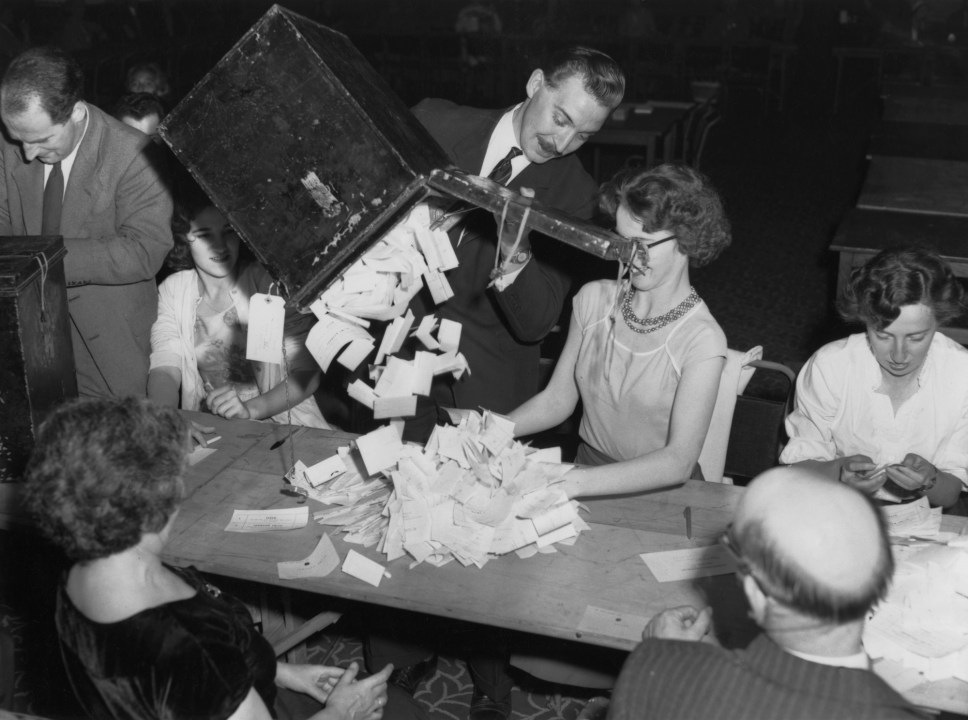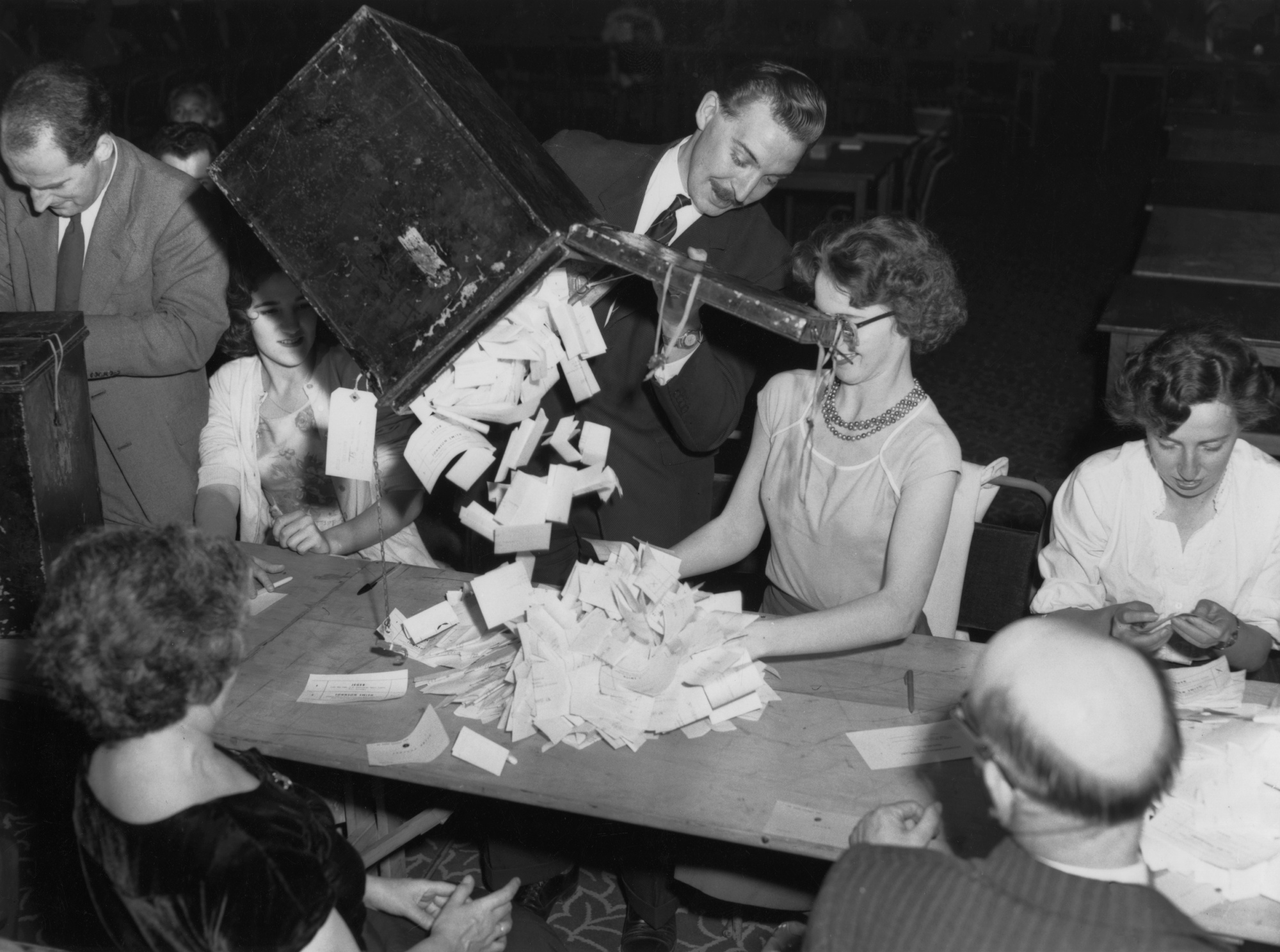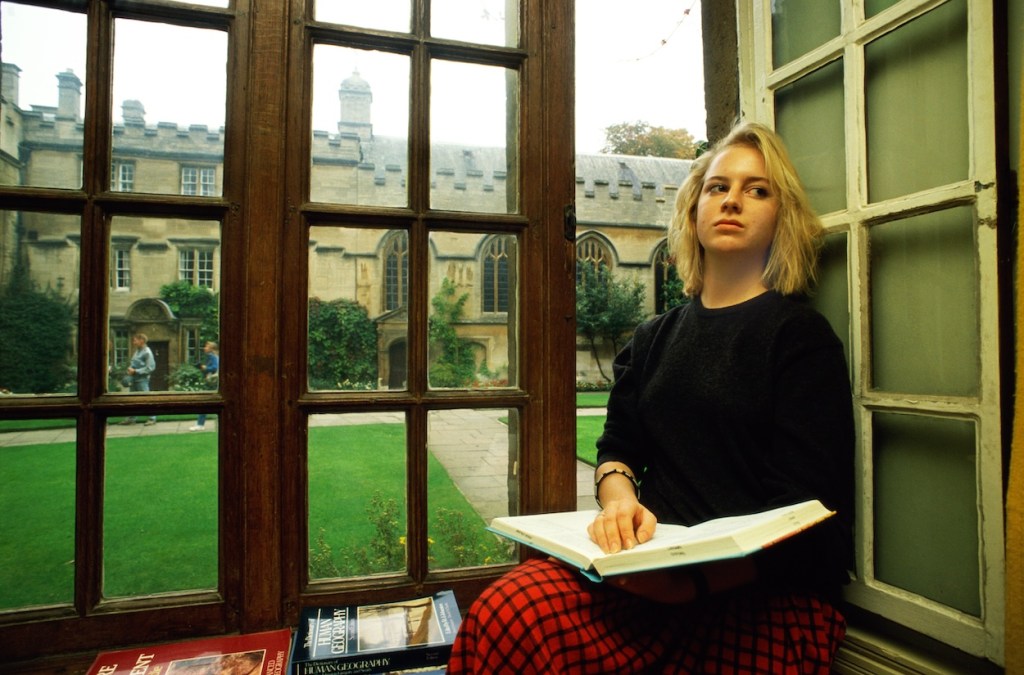In the grand tapestry of British history, few threads are as vibrant as our electoral traditions. Alas, in recent years, a creeping beige has infiltrated this once colourful corner of public life, dulling the spectacle and distancing the people from the very heart of democratic life. Nowhere is this more evident than in the local elections, where councils, under the flimsy guise of penny-pinching, have taken to postponing the count until the day after the vote, robbing us of a vital tradition.
Democracy is not a backroom deal or a spreadsheet tally, it’s a public act, a shared spectacle that demands to be seen, felt and lived
Cast your mind back to the raucous hustings of the 18th century, when elections were not the tame, technocratic exercises we know today but grand, chaotic spectacles that gripped the nation. Before the secret ballot, voting was a public affair. Men (for it was only men then) bellowed their choices in full view of their neighbours, their voices ringing out across market squares and village greens. The count followed hot on the heels of the poll, a swift reckoning that saw results proclaimed from the balcony of the town hall or the steps of a coaching inn. The returning officer, often a local luminary, would declaim the victor’s name to a jostling, jeering crowd, their cheers or groans echoing through the night. This was democracy unfiltered – a visceral, communal act that made every citizen a witness to the machinery of power.
These occasions were more than political; they were cultural milestones, immortalised in a sub-genre of election art that captured the tumult and triumph of the day. Painters like Hogarth and Rowlandson churned out canvases and engravings of riotous election scenes, candidates haranguing the mob, voters swaying with ale or indignation, the whole messy business laid bare. These works, often turned into prints, found their way onto the walls of pubs, where democracy was debated, dissected, and occasionally drowned in stout and sack. The count wasn’t just a process; it was a performance, a drama that kept the people hooked, their eyes fixed on the political stage.
Even after the Ballot Act of 1872 created the secret vote (first trialled in Pontefract no less), a noble shield against bribery and thuggery, the count retained its public swagger. The results were still announced with flourish, the overnight vigil a ritual that bound communities in shared suspense. It was special, it was dramatic, and it mattered.
Now, look at the sorry state of today’s election counts. Gone are the town halls, those historic bastions of civic pride, replaced by the sterile sprawl of out-of-town sports centres and exhibition halls. These places are not for community but for convenience. They are soulless breeze-block sheds marooned on the edges of towns, far from the beating heart of the people they serve. Access to the count is rationed like wartime sugar: strict entry rules prevail, and even in parliamentary by-elections, candidates are often capped at a miserly four guests apiece. The public, once the stars of the show, are bit players, peering through the cracks of a system that’s forgotten them.
The announcement itself has been gelded by the tyranny of television. In days gone by, every candidate, winner or loser, took to the stage to address the crowd, thanking their supporters and bowing out with grace or defiance. It was a democratic courtesy, a moment for all voices to be heard. Today? The winner gets the mic while the losers get the boot, all because the TV cameras want a quick clip for the news. The result announcement is now a tepid affair, stripped of its former pomp and tailored not for the people but for producers and council officers.
Worst of all is the creeping scourge of the ‘next day count.’ This year, more than half of the councils declaring local election results have opted to delay the tally until the morning after the vote. They bleat about efficiency and cost-saving – tosh! The expense is no less; the council workers who once toiled through the witching hours now clock their overtime in daylight, the bill unchanged. This isn’t thrift; it’s laziness, a sop to the convenience of bureaucrats who’d rather snooze than serve. Even our broadcasters are at a loss – can they justify the overnight election coverage? The news agenda moves on and the results, so important for the governance of our shires and cities, become a footnote, not a headline.
The cost to democracy is incalculable. The overnight count was a national vigil that kept us glued to the wireless or the telly as the first results rolled in. It was a moment of unity, of collective breath-holding, that made the election more than a chore, it made it an event. I recall standing in Smith Square in the early hours of a June morning in 1987, a crowd of hundreds had gathered, the crowd cheered and chanted. Norman Tebbit appeared, Thatcher appeared and a murmur started, ‘Bring out Dennis, Bring out Dennis’. He pushed his head through the open window to tumultuous applause. It was an event.
Now, with the count deferred, that magic is gone. People trudge off to work, the kids need ferrying, the bins need emptying, and the results dribble out amidst the humdrum of daily life. The thrill wanes, the interest fades, and democracy becomes just another headline to scroll past.
This is no mere quibble over logistics; it’s a symptom of a deeper rot, the beigification of public life. Bit by bit, vivid, vital elements of our society are being shunted behind closed doors, sanded down into polite, technical husks. The election count, once a raucous celebration of popular will, has been sanitised, streamlined, and sidelined, its humanity leached away. It doesn’t just diminish the event; it diminishes democracy itself.
Democracy is not a backroom deal or a spreadsheet tally, it’s a public act, a shared spectacle that demands to be seen, felt and lived. The secret ballot guards our private choice, but the count and the proclamation should be anything but secret. They should roar with life, bursting from historic venues, not whispered in the sterile hush of a leisure centre. They should give every candidate their say, not just the one the cameras fancy. And they should happen when the ink is still wet on the ballots, not when the moment has passed and the nation’s attention has wandered off.
So let us rise against this creeping beige, this slow strangling of our civic soul. Let us reject the false gospel of the next day count and insist that democracy, in all its messy glory, is worth a sleepless night. For if we let it fade into the shadows, if we let the joy, heartbreak and the drama be dimmed, then we lose not just an event, but the very essence of what it means to govern ourselves. And that, my friends, is a loss too bitter to bear.








Comments